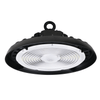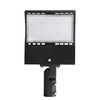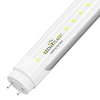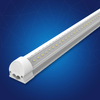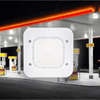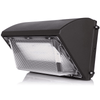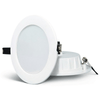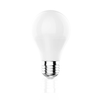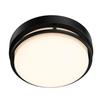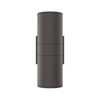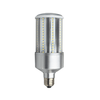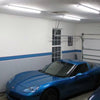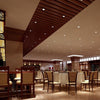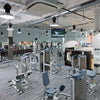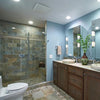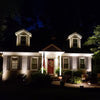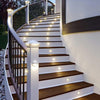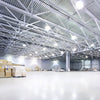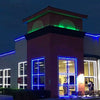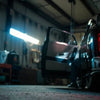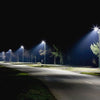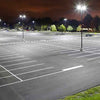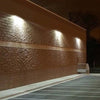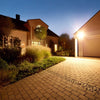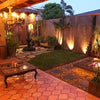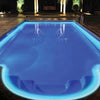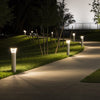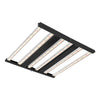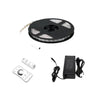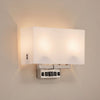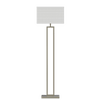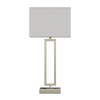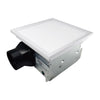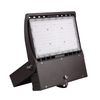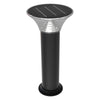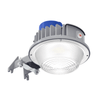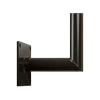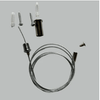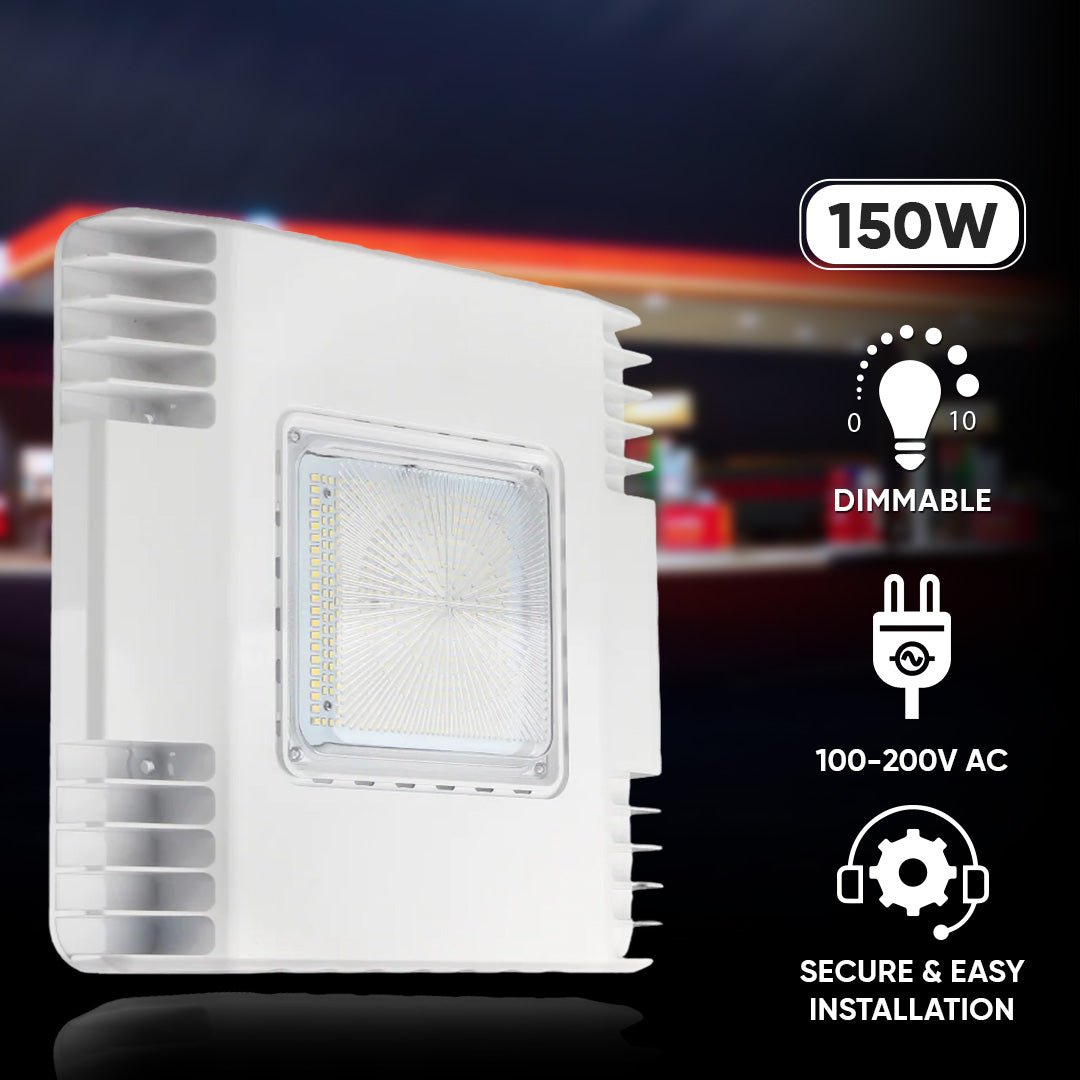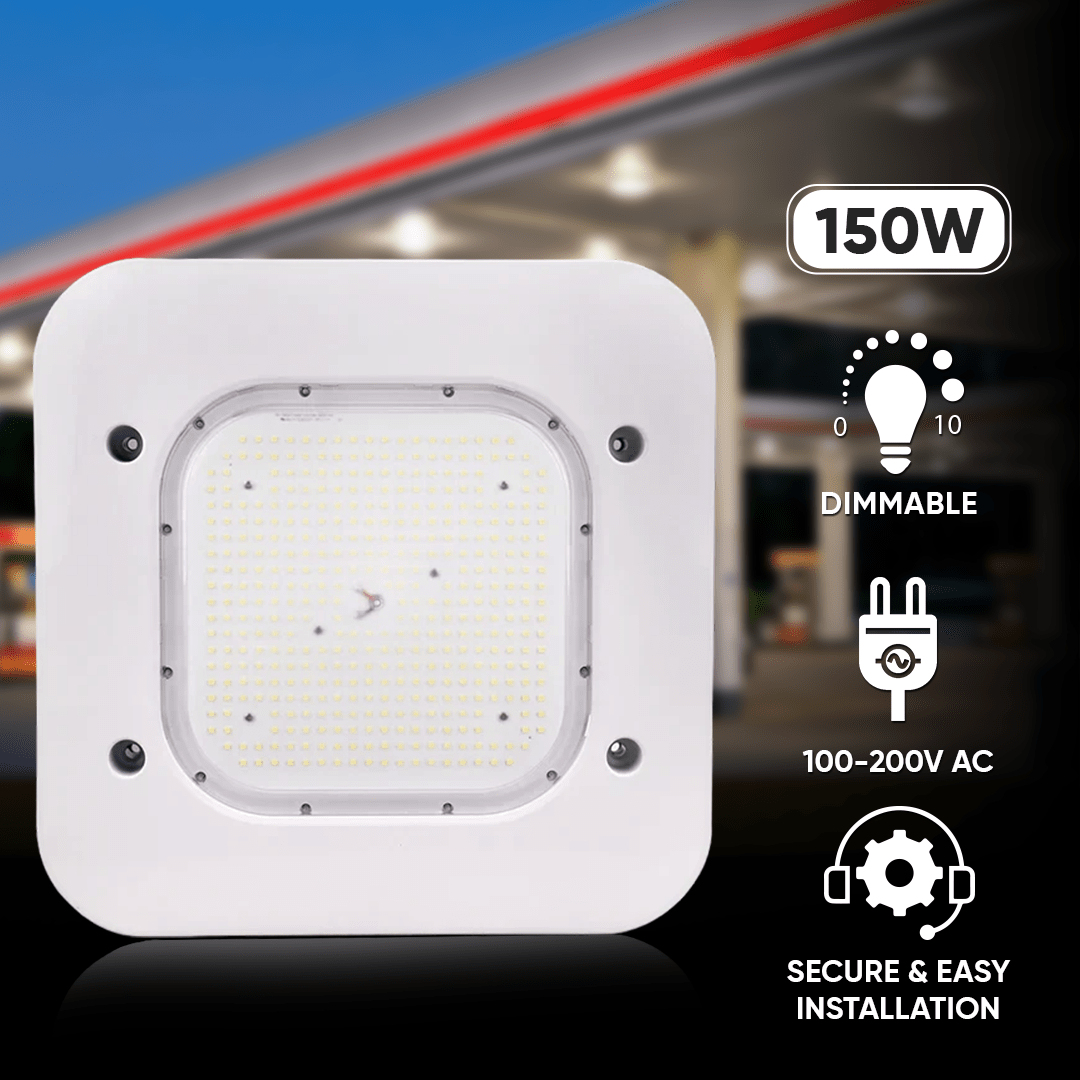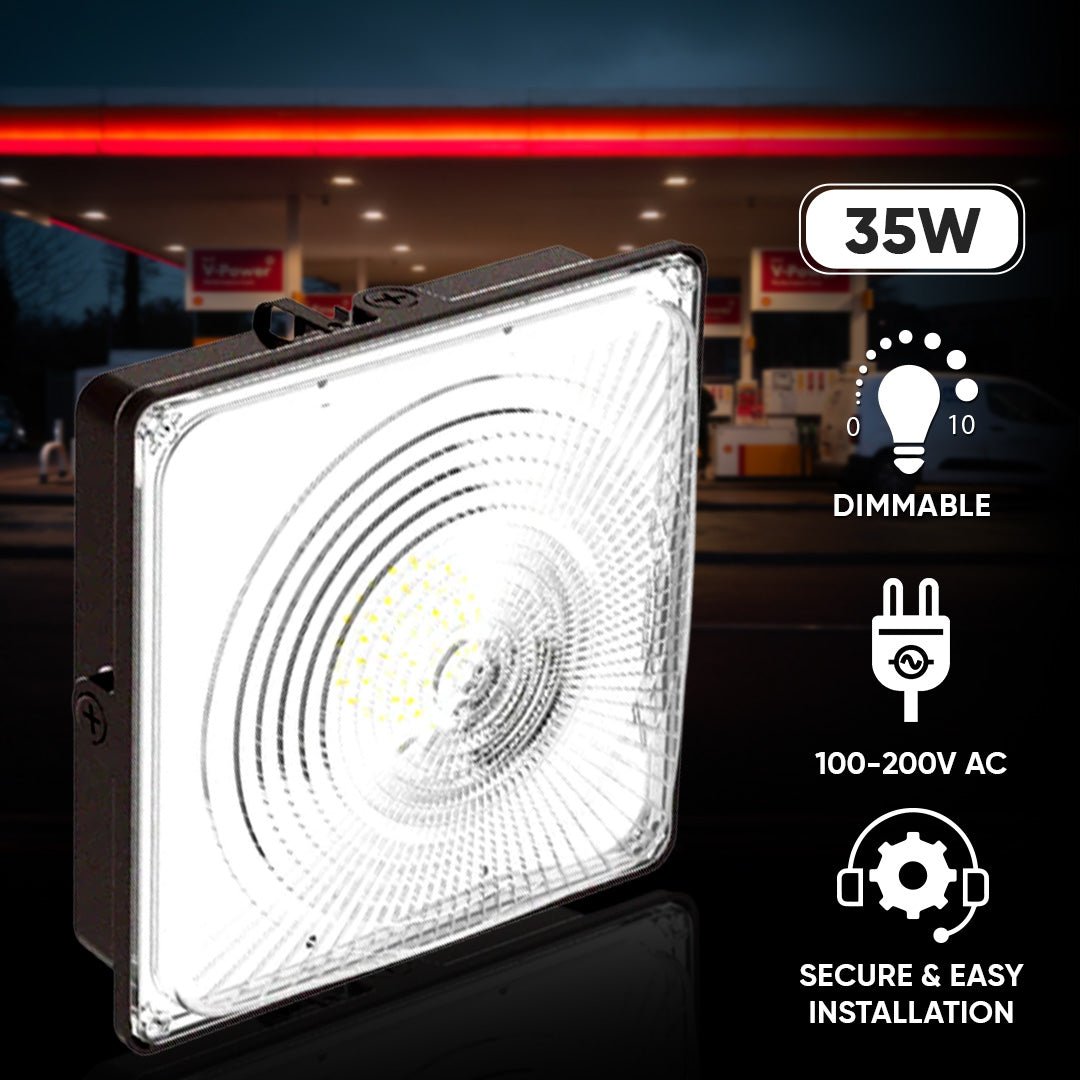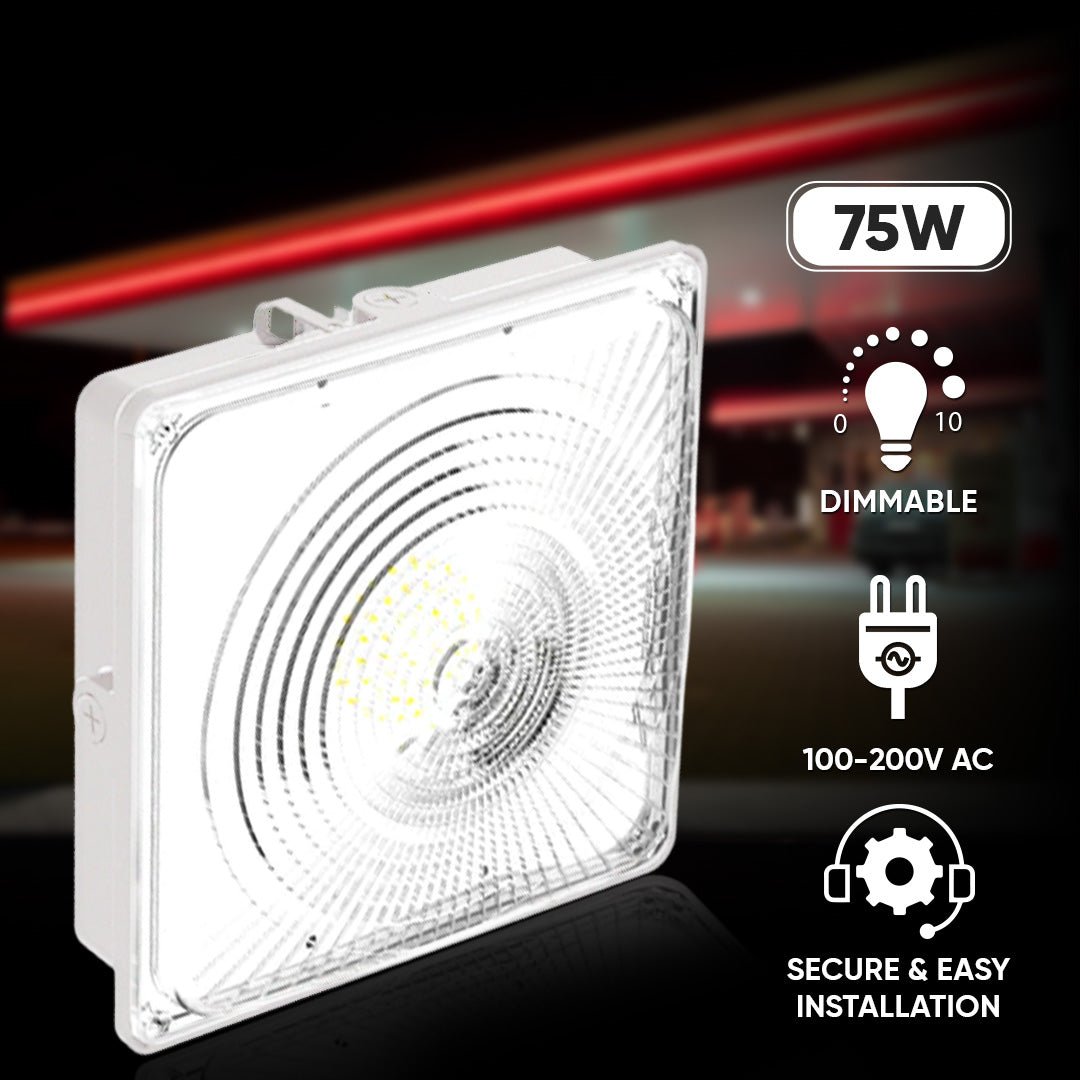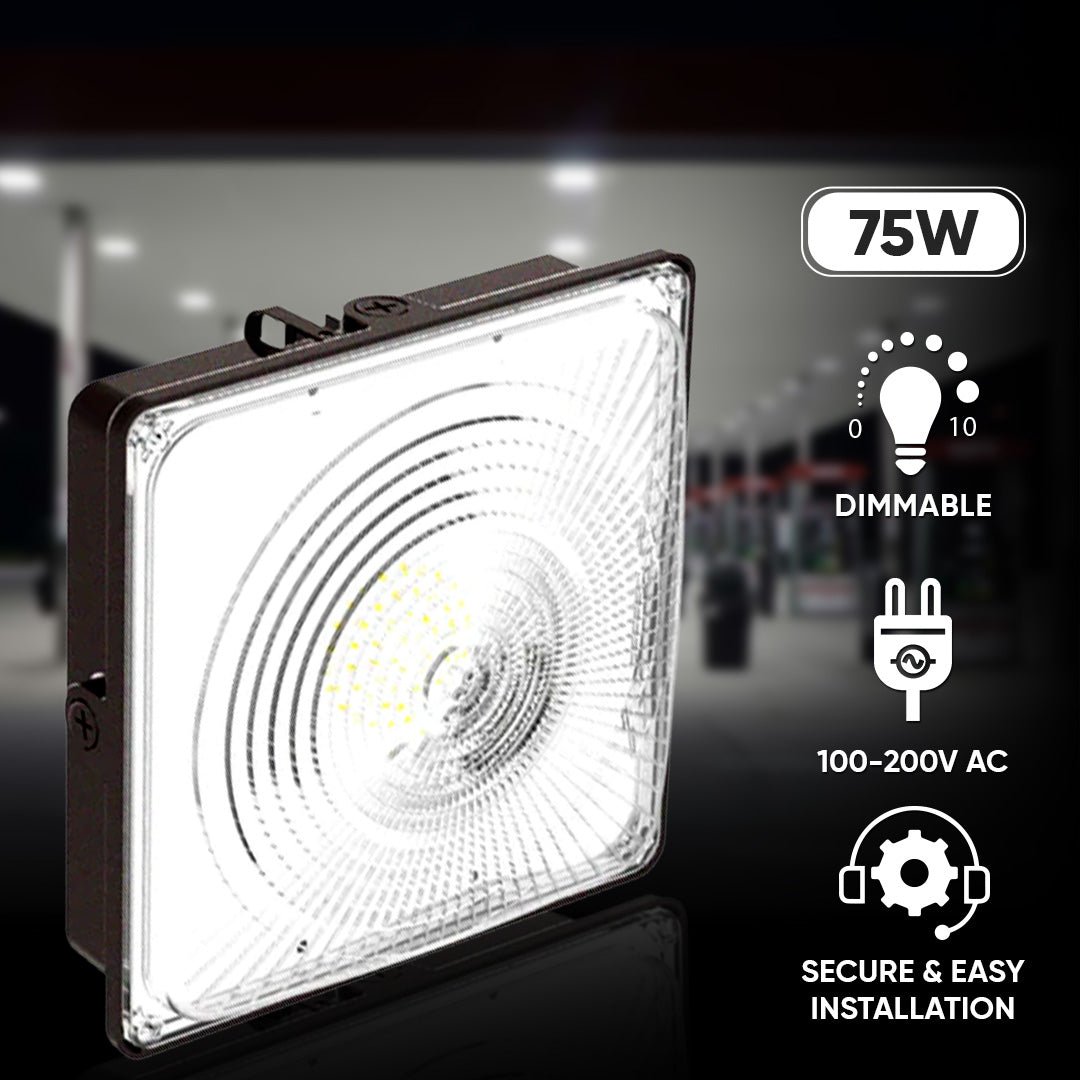Gas stations require impactful lighting solutions to ensure the safety, visibility and sustainability for both customers and the staff. LED Canopy Lights have come up with the preferred choices due to the sustainable, longevity and premium brightness. If you want to know about canopy lights for installing in your gas station, let's tell you how it works through this helpful guide so that you can make the right choice.
Consider Your Lighting Needs
Evaluate your gas station's unique lighting needs before choosing LED canopy lights. Consider the size of the canopy area, desired levels of brightness, and any specific lighting regulations when planning. Different wattages and color temperatures are available for LED lights, so it's important to know what you need when choosing.
Energy and Cost Savings
LED canopy lights are well-known for their high energy efficiency, requiring much less power compared to conventional lighting options such as metal halide or fluorescent bulbs. This effectiveness not just decreases power expenses but also diminishes maintenance expenditures because of their extended life and sturdiness. Search for lights that have high lumens per watt (efficacy) ratings in order to optimize energy conservation.
Proper Light Distribution
Good canopy lighting should have consistent light distribution to remove shadows and guarantee good visibility across the gas station premises. LED canopy lights provide excellent distribution of light, ensuring uniform brightness over the canopy and nearby spaces. Think about using lights that have adjustable beam angles or optics to customize the way light is spread in your particular design.
Durability and Weather Resistance
Gas station settings subject lights to different weather conditions such as rain, wind, and temperature changes. Select LED canopy lights that are specifically built to endure outdoor conditions and feature sturdy materials like aluminum or polycarbonate casings. Search for lights that have ratings of IP65 or above to ensure resistance to dust and water.

Compliance with Lighting Standards
Make sure the LED canopy lights you select adhere to the appropriate lighting guidelines and rules for gas stations. This covers rules about light overflow, minimizing glare, and color presentation for ensuring safety and visibility for both customers and employees. LED technology provides a way to meet these standards with flexibility while also delivering excellent light quality.
Longevity and Warranty
LED canopy lights are famous for their extended lifespan, frequently surpassing 50,000 hours of operation. Choose lights from well-known manufacturers that provide guarantees for both the fixture and the LED components. This guarantees tranquility and safeguards your investment in lighting infrastructure.
Installation and Maintenance Considerations
Take into account the simplicity of installation and maintenance when choosing LED canopy lights. Search for fixtures that have easy installation options and components that can be easily reached for regular maintenance tasks such as changing or cleaning light bulbs. Certain LED lights are created to be installed into current canopy fixtures, decreasing both the time and money required for installation.
Conclusion
Deciding on LED canopy lights for gas station illumination involves taking into account aspects like energy efficiency, light effectiveness, longevity, and adherence to standards. By assessing your individual lighting requirements and considering these factors, you can choose canopy lights that improve safety, visibility, and operational effectiveness at your gas station.
To receive additional details on choosing the appropriate LED canopy lights for your gas station, reach out to LEDMyPlace now.
Frequently Asked Questions (FAQs)
Q1: What are the benefits of using LED canopy lights for gas stations?
A1. LED canopy lights offer several advantages, including energy efficiency, long lifespan, superior light quality, and reduced maintenance costs compared to traditional lighting options.
Q2: How do LED canopy lights contribute to energy savings?
A2. LED canopy lights consume less energy than traditional lighting sources, resulting in lower electricity bills. Their high efficiency and longer lifespan also reduce replacement and maintenance costs over time.
Q3: Are LED canopy lights suitable for outdoor use in all weather conditions?
A3. Yes, LED canopy lights are designed to withstand outdoor environments, including rain, wind, and temperature fluctuations. Look for lights with IP65 or higher ratings for optimal weather resistance.
Q4: Can LED canopy lights be retrofitted into existing gas station lighting fixtures?
A4. Yes, many LED canopy lights are designed for retrofitting into existing fixtures, which can simplify installation and reduce costs associated with replacing entire lighting systems.
Q5: How can I ensure compliance with lighting regulations for gas stations?
A5. Choose LED canopy lights that meet relevant lighting standards and regulations for gas stations, including guidelines on light trespass, glare reduction, and color rendering. Manufacturers often provide compliance information for their products.
Q6: What is the typical lifespan of LED canopy lights?
A6. LED canopy lights typically have a lifespan of over 50,000 hours of use, which translates to several years of maintenance-free operation under normal conditions.
Q7: Do LED canopy lights require special maintenance?
A7. LED canopy lights generally require minimal maintenance due to their long lifespan and durable construction. Routine tasks may include occasional cleaning to ensure optimal light output.





